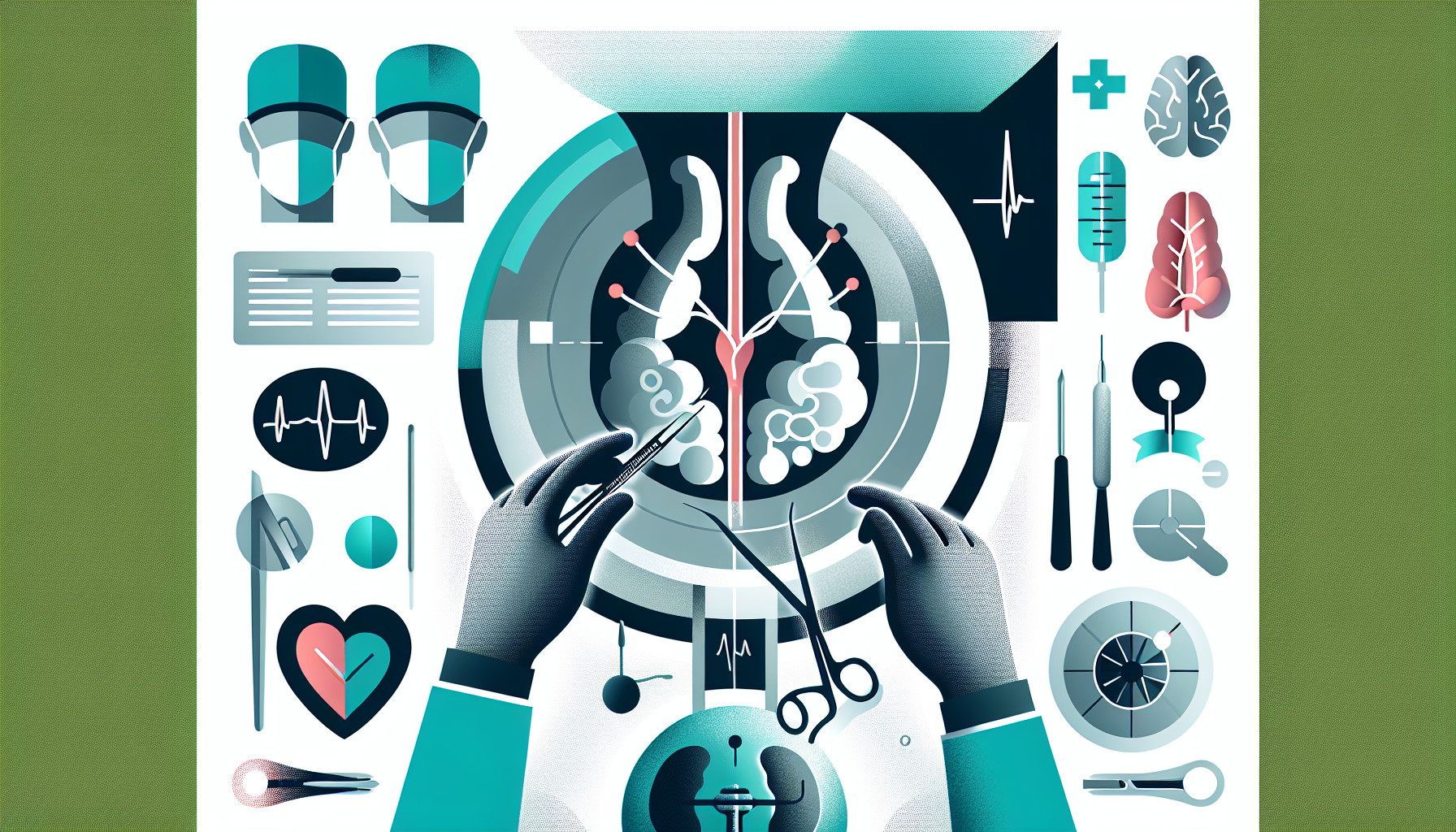Our Summary
This research paper is about the surgery to implant a penile prosthesis, a device used to treat erectile dysfunction, in men who have had a specific type of bladder cancer surgery (radical cystectomy and urinary diversion). The report suggests that this type of surgery is not commonly discussed in medical literature. However, recent studies indicate that it’s safe to perform this procedure even after major surgery in the abdominal area, thanks to new and improved techniques. More research is needed to understand how this procedure affects patients’ functional outcomes. The paper suggests that as the focus on the quality of life after bladder cancer surgery increases, doctors should consider the inflatable penile prosthesis as a preferred treatment option for erectile dysfunction that doesn’t respond to other treatments. This is due to its safety and its unmatched ability to restore erectile function.
FAQs
- What is a penile prosthesis and why is it used?
- Is it safe to perform penile implant surgery after major abdominal surgery such as radical cystectomy and urinary diversion?
- Why is the inflatable penile prosthesis considered a preferred treatment option for erectile dysfunction post bladder cancer surgery?
Doctor’s Tip
A helpful tip a doctor might give a patient about penile implant surgery is to make sure to follow all pre-operative and post-operative instructions carefully to ensure the best possible outcome. This may include avoiding certain medications, abstaining from smoking, and maintaining good hygiene to prevent infection. Additionally, it’s important to communicate openly with your healthcare team about any concerns or questions you may have before and after the surgery.
Suitable For
Patients who are typically recommended for penile implant surgery include those who have tried other treatments for erectile dysfunction, such as medications or vacuum devices, without success. Candidates for penile implant surgery may also have underlying medical conditions, such as diabetes or cardiovascular disease, that make other treatments less effective. Additionally, patients who have had prostate cancer surgery or other pelvic surgeries that have resulted in erectile dysfunction may also be recommended for penile implant surgery. Ultimately, the decision to undergo penile implant surgery is made on a case-by-case basis, taking into consideration the patient’s overall health and medical history.
Timeline
Before penile implant surgery:
- Patient consults with a urologist or specialist about erectile dysfunction and potential treatment options.
- Patient undergoes a thorough evaluation to determine if they are a good candidate for penile implant surgery.
- Patient discusses the risks, benefits, and expectations of the surgery with their healthcare provider.
- Patient may be required to stop taking certain medications or make lifestyle changes leading up to the surgery.
After penile implant surgery:
- Patient will have a recovery period in the hospital or outpatient facility where the surgery was performed.
- Patient will be instructed on how to care for the surgical site and the penile implant.
- Patient may experience some discomfort, swelling, or bruising in the days following surgery.
- Patient will need to avoid sexual activity and strenuous physical activity for a period of time as instructed by their healthcare provider.
- Patient will have follow-up appointments to monitor healing and adjust the implant if necessary.
- Patient will gradually resume sexual activity as instructed by their healthcare provider.
- Patient may experience improved erectile function and satisfaction with sexual activity after the recovery period.
What to Ask Your Doctor
What are the potential risks and complications associated with penile implant surgery?
How long is the recovery period after penile implant surgery?
Will I still be able to achieve a natural erection after the implant is placed?
How long will the penile implant last before needing to be replaced?
What are the different types of penile implants available and which one is best for me?
How will the penile implant affect sexual sensation and pleasure?
Will I still be able to ejaculate after the implant is placed?
How soon after the surgery can I resume sexual activity?
Are there any lifestyle changes I need to make after getting a penile implant?
What is the success rate of penile implant surgery in treating erectile dysfunction?
Reference
Authors: Loh-Doyle JC. Journal: Curr Urol Rep. 2019 Jan 28;20(2):7. doi: 10.1007/s11934-019-0873-9. PMID: 30689132
